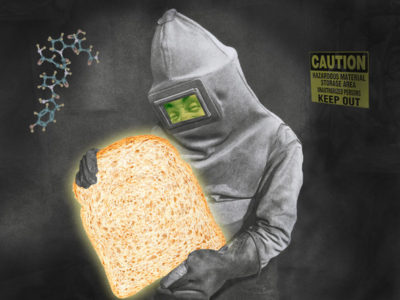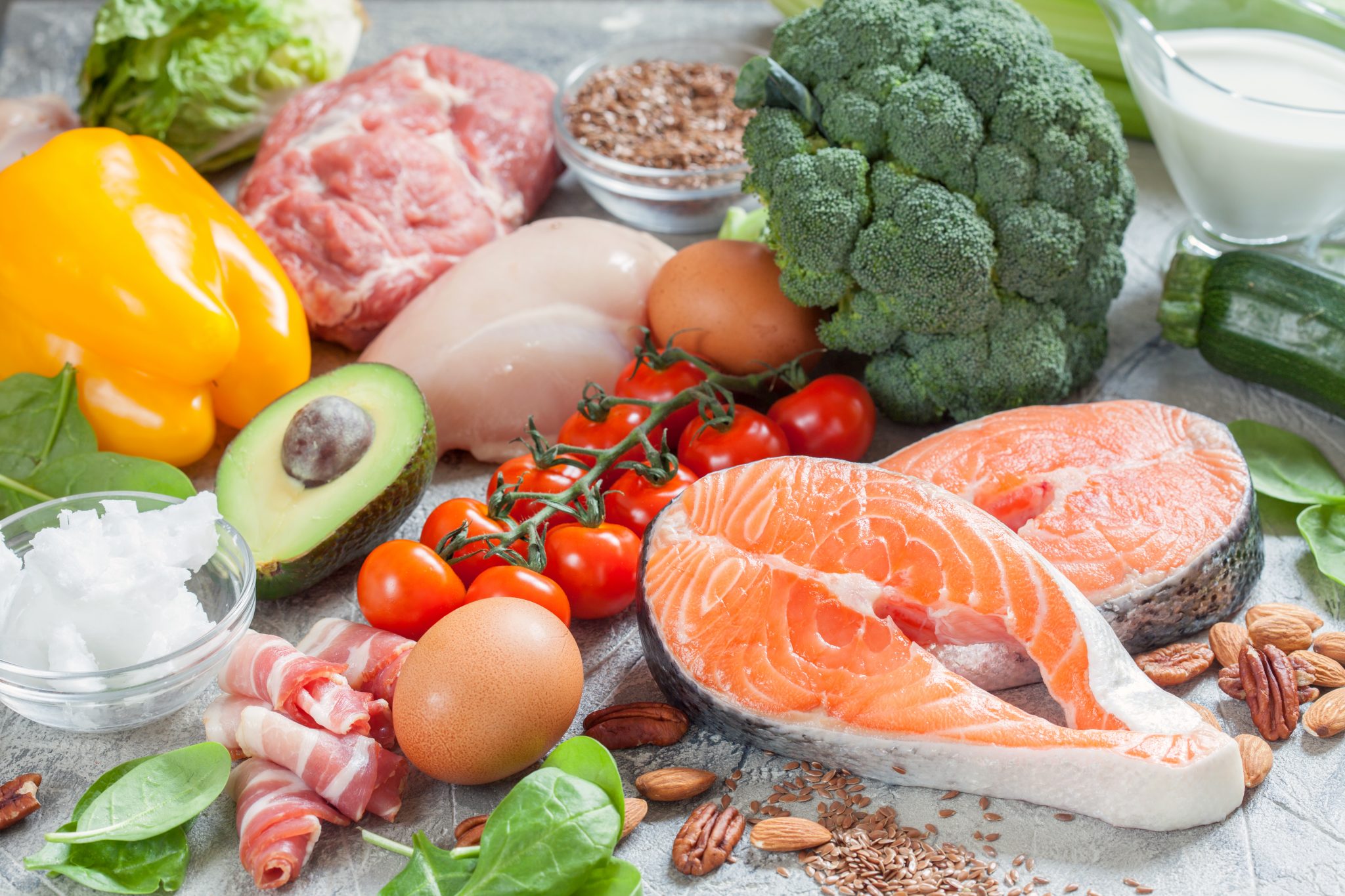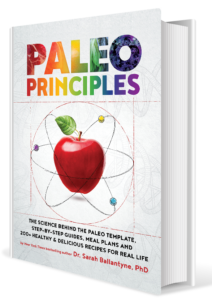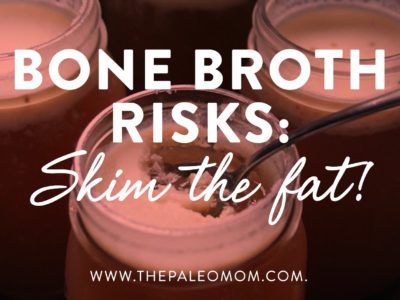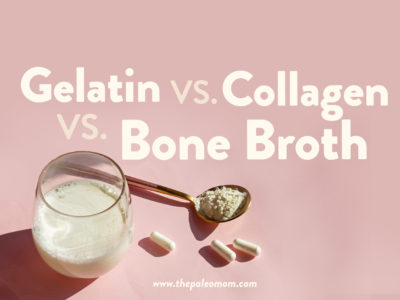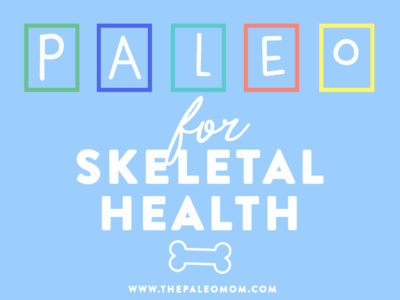Two news stories centered around gluten-free diets were published in the New York Times in the last week, one the magazine section and one in the science/health section. I’d like to take this opportunity to give a huge shout-out to the NYT for having staff science writers (who actually have science backgrounds!). So few media outlets have science reporters any more and I believe this is one of the biggest hurdles we face as a society in battling the enormous amount of misinformation out there. There is a need for people with science backgrounds and a talent for distilling and explaining science to report on it in the media. There’s a need, but there’s no money–most media outlets aren’t hiring.
 The first story The Boy With a Thorn in His Joints was published February 1st. It excited many people with its explanation of the link between gut health (and specifically a leaky gut) and inflammation. It shares the story of a 5-year old boy named Sheperd, diagnosed with the intensely painful autoimmune disease juvenile idiopathic arthritis at 3-years old, who found no answers with conventional medicine (either NSAIDs or DMARDs). The story is told by Shepherd’s mother and her reports of interactions with her son’s pediatric rheumatologist make me angry. I had similar experiences with my daughter’s pediatric gastroenterologist (one of the top in the country) who thought that putting my daughter on a dairy-free, gluten-free diet was nonsense (and yet is cured her of her obstructive sleep apnea, so there!).
The first story The Boy With a Thorn in His Joints was published February 1st. It excited many people with its explanation of the link between gut health (and specifically a leaky gut) and inflammation. It shares the story of a 5-year old boy named Sheperd, diagnosed with the intensely painful autoimmune disease juvenile idiopathic arthritis at 3-years old, who found no answers with conventional medicine (either NSAIDs or DMARDs). The story is told by Shepherd’s mother and her reports of interactions with her son’s pediatric rheumatologist make me angry. I had similar experiences with my daughter’s pediatric gastroenterologist (one of the top in the country) who thought that putting my daughter on a dairy-free, gluten-free diet was nonsense (and yet is cured her of her obstructive sleep apnea, so there!).
Shepherd’s parents finally hit a desperate point where they were willing to try “complimentary medicine” approaches. They switched Sheperd to a gluten-free, dairy-free, nightshade-free and refined sugar-free diet in conjunction with supplements including fish oil, probiotics, sour Montmorency cherry juice and a Chinese herbal supplement called four-marvels powder. In 6 weeks, Shepherd starting recovering, feeling less pain and having more mobility. Not long afterward, they were able to wean him off of DMARDs and now report that the only times that Shepherd has had flares in the last year is after accidentally eating gluten or needing to go on antibiotics.
This story is powerful. Emotional and triumphant. The agony of waiting for something to work for six whole weeks, not knowing if it will, the stress the anxiety are palpable. The sheer joy at being able to “fix” your child’s problem, but with always that seed of doubt of whether it will return, hit home. And the explanation that arthritis is caused by a leaky gut which causes inflammation and stimulates the immune system is a very good one. I have no doubt that there are many families now researching gluten-free, dairy-free diets for their children. Maybe some of the will take that small extra step and try a Paleo diet.
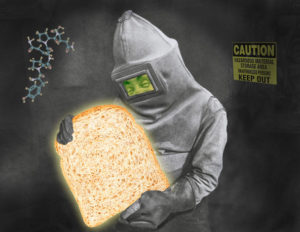 The second story Gluten-Free, Whether You Need It or Not, published February 6th, presents the mystery and controversy around gluten sensitivity. The controversy is really one of definition. It is now being recognized that there exists celiac disease, wheat allergy, gluten intolerance and gluten sensitivity. This paper in the very high impact research journal Gut (I always did love that name) suggests using the term “gluten-related disorders” as an umbrella term for all of these related but disparate conditions. The problem is that gluten sensitivity is not well defined or well understood (hence the mystery). There are medical professionals at both ends of the extreme, those that say it doesn’t exist versus those that claim that most people are actually gluten sensitive because humans are not adapted to digesting grains.
The second story Gluten-Free, Whether You Need It or Not, published February 6th, presents the mystery and controversy around gluten sensitivity. The controversy is really one of definition. It is now being recognized that there exists celiac disease, wheat allergy, gluten intolerance and gluten sensitivity. This paper in the very high impact research journal Gut (I always did love that name) suggests using the term “gluten-related disorders” as an umbrella term for all of these related but disparate conditions. The problem is that gluten sensitivity is not well defined or well understood (hence the mystery). There are medical professionals at both ends of the extreme, those that say it doesn’t exist versus those that claim that most people are actually gluten sensitive because humans are not adapted to digesting grains.
The article explains some very important points. The incidence of celiac disease is increasing. This might be because GMO grains contain more gluten. The vast majority of celiacs remain undiagnosed. Those who have gluten sensitivity are simply those who feel better when they follow a gluten-free diet (there is no test). There is research showing that people with Irritable Bowel Syndrome felt better and had fewer symptoms when following a gluten-free diet (in a very cleverly designed blinded trial). This is important information to be out there in the mainstream media!
But, I felt irked as I read this article. It was written by one of the NYT’s staff science writers, Kenneth Chang, who does a good job of presenting most of the many sides to this issue. But not all the sides. Maybe I was feeling overly defensive, being obviously part of one of the fringe and fad extremes that the article presents, but I took issue with a few statements in this article..
The article gives an anecdotal example of a women who lost weight and had her allergies go away after adopting a gluten-free diet. The article then goes on to explain that experts are skeptical. Quote: “It does not make obvious sense, for example, that someone would lose weight on a gluten-free diet. In fact, the opposite often happens for celiac patients as their malfunctioning intestines recover.” Can I jump in here? Celiacs gain weight when their intestines recover because they can finally absorb nutrients from their food. People who are gluten sensitive but non-celiac often lose weight when they remove gluten from their diet because they are reducing inflammation, regulating hormones, and cutting out a major source of nutrient-poor sugar-rich foods. It actually makes total sense.
Two other statements just riled me, both implying that gluten-free diets are less healthy and so people who aren’t diagnosed with gluten-related disorders should not adopt gluten-free diets. The first statement is a quote from Dr. Stefano Guandalini, medical director of the University of Chicago’s Celiac Disease Center. “It is not a healthier diet for those who don’t need it,” Dr. Guandalini said. These people “are following a fad, essentially.” He added, “And that’s my biased opinion.” Yes, that is a biased opinion. And in my biased opinion, it’s an uninformed one. The second irksome statement: “They [experts] also worried that people could end up eating less healthfully. A gluten-free muffin generally contains less fiber than a wheat-based one and still offers the same nutritional dangers — fat and sugar. Gluten-free foods are also less likely to be fortified with vitamins.”
Can I jump in again? Okay, yes, I obviously think that the vast majority of gluten-free baked goods available are not healthy. They tend to still be grain-based and loaded with emulsifiers. Clearly, I do not believe in simply substituting wheat with rice and corn. But, how about those of us who choose to replace gluten-containing foods with vegetables!? I don’t need to remind you about how much healthier vegetables are than any grain, do I? I don’t need to say that vegetables contain more of every single micronutrient than grains, for a fraction of the sugar and at least the same amount of fiber, do I? The same can even be said of fruit, although fruit is somewhere in the middle in terms of sugar content. And while people who eat gluten-free (and not Paleo) typically do buy some gluten-free breads and pastas, they also typically consume fewer of these types of products than people eating the Standard American Diet. So while gluten-free baked goods might not be fortified, you can’t judge an entire diet based on them. Yes, I’m sure there are gluten-free folks out there chowing down on empty sugary gluten-free junk and who really are eating a less healthy diet. But, to label gluten-free as less healthy is wrong. Cutting gluten out of your diet does not deprive you of any nutrients. I suppose I could also mention that whole vilification of fat thing here too. But, it’s late. So, I’ll summarize: fat is not bad for you. Sheesh.
I’m sure someone else reading the story would have focused more on the other positive aspects. Gluten-free in the news is good. Explaining that it’s a spectrum and that it’s not just celiac is good. Encouraging people to have a dialogue with their doctors is good. It’s just hard for me to gloss over the fact that this article put big warning signs on gluten-free diets like somehow cutting gluten our of your diet might deprive you of vital nutrition. Did I already say sheesh?
Let’s end on a positive note though. Paleo is gaining momentum and, while many still consider it a fad diet, the scientific basis behind it is providing traction. More and more, people are healing themselves by changing how they eat. More and more, wonderful success stories like Shepherd’s stories are making headlines. And it’s very exciting to watch people take back their health!

